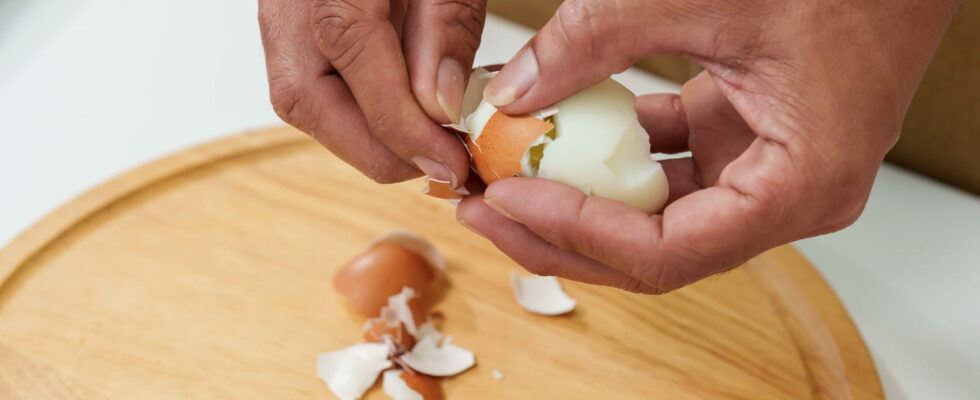With this ingredient, peeling your hard-boiled eggs will become child’s play. Just add a few drops to the cooking water. And the magic happens!
It’s the season for mixed salads and picnics. The star of these meals: hard-boiled eggs of course! While it was long advised not to eat more than two per week, today, it’s quite the opposite. The latest studies show that this food, a source of protein, vitamins and minerals, is very good for our bodies. So let’s not deprive ourselves of it in our summer recipes!
The only problem, the Preparing perfect hard-boiled eggs is often a challenge, especially when it comes to peeling them without damaging the egg white. Many have been left with scattered pieces of egg, a stubborn shell, and growing frustration.
However, a simple and effective trick could well change the situation: adding a few drops of vinegar or lemon (or even a few slices of lemon) to the cooking water. This almost magical method guarantees that The shell of hard-boiled or soft-boiled eggs will come off easily.
Why does it work? To understand the effectiveness of this technique, it is important to know the structure of an egg. The eggshell is made mainly of calcium carbonate. Under this shell, a thin but resistant membrane surrounds the egg white. You have certainly already seen it when peeling your eggs.
When you add vinegar or lemon juice to the cooking water, the acidity of these liquids helps to slightly dissolve the calcium carbonate in the shell, making it more fragile and easier to detach. The acidity also helps to coagulate the proteins in the egg white, making it firmer and less likely to stick to the shell. The result: easy-to-peel eggs with no tears or egg white loss.
Here’s how to make perfect hard-boiled eggs every time. Preferably, use eggs that aren’t super fresh. Slightly aged eggs (about a week old) are easier to peel because the membrane surrounding the egg white comes off the shell more easily.
Fill a saucepan with water and add a tablespoon of white vinegar, the juice of 1/2 lemon or a few lemon slices. Bring the water to a boil, then gently lower the eggs using a spoon. Cook for about 9 to 12 minutes, depending on the size of the eggs and how cooked you want them. Once the eggs are cooked, immediately transfer them to a bowl of ice water. This thermal shock helps shrink the egg white, making it even easier to peel off the shell.
Gently tap the eggs on a hard surface to crack the shell, then gently roll them around to create small cracks all over. Under running water, start peeling from the base of the egg, where there is an air pocket. This should make the process even easier.
